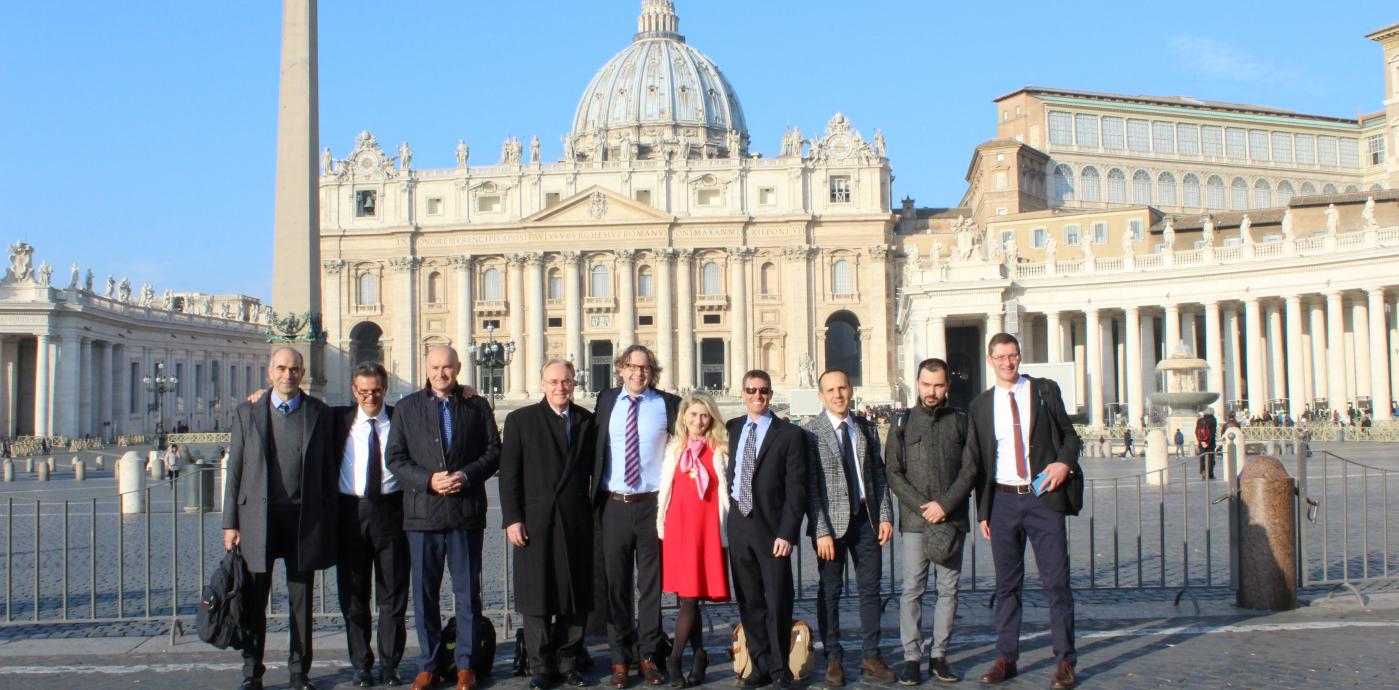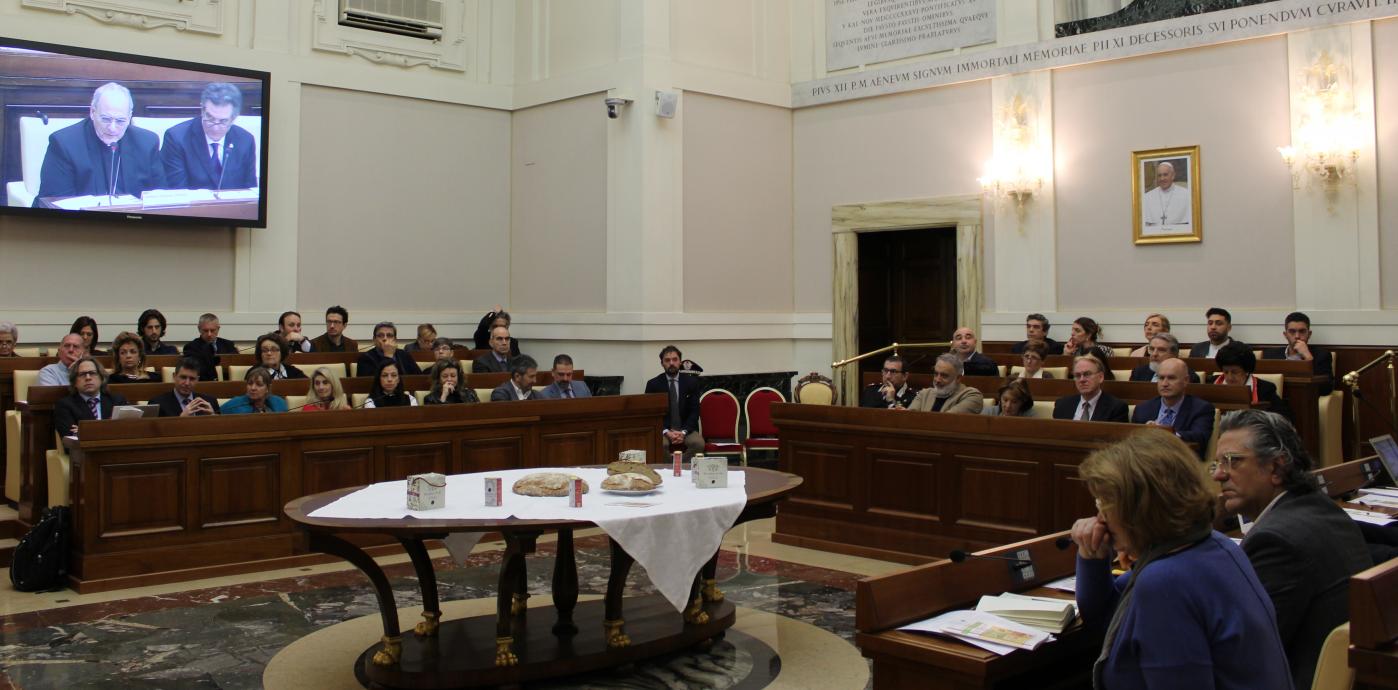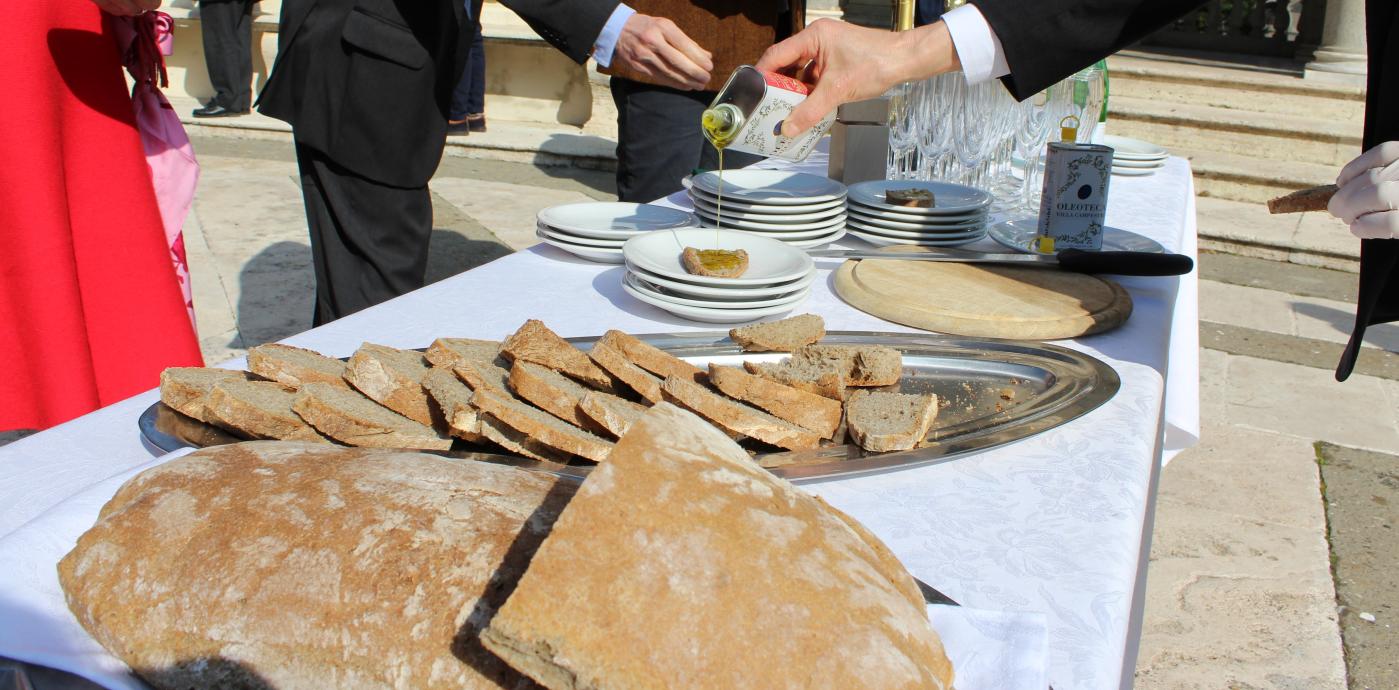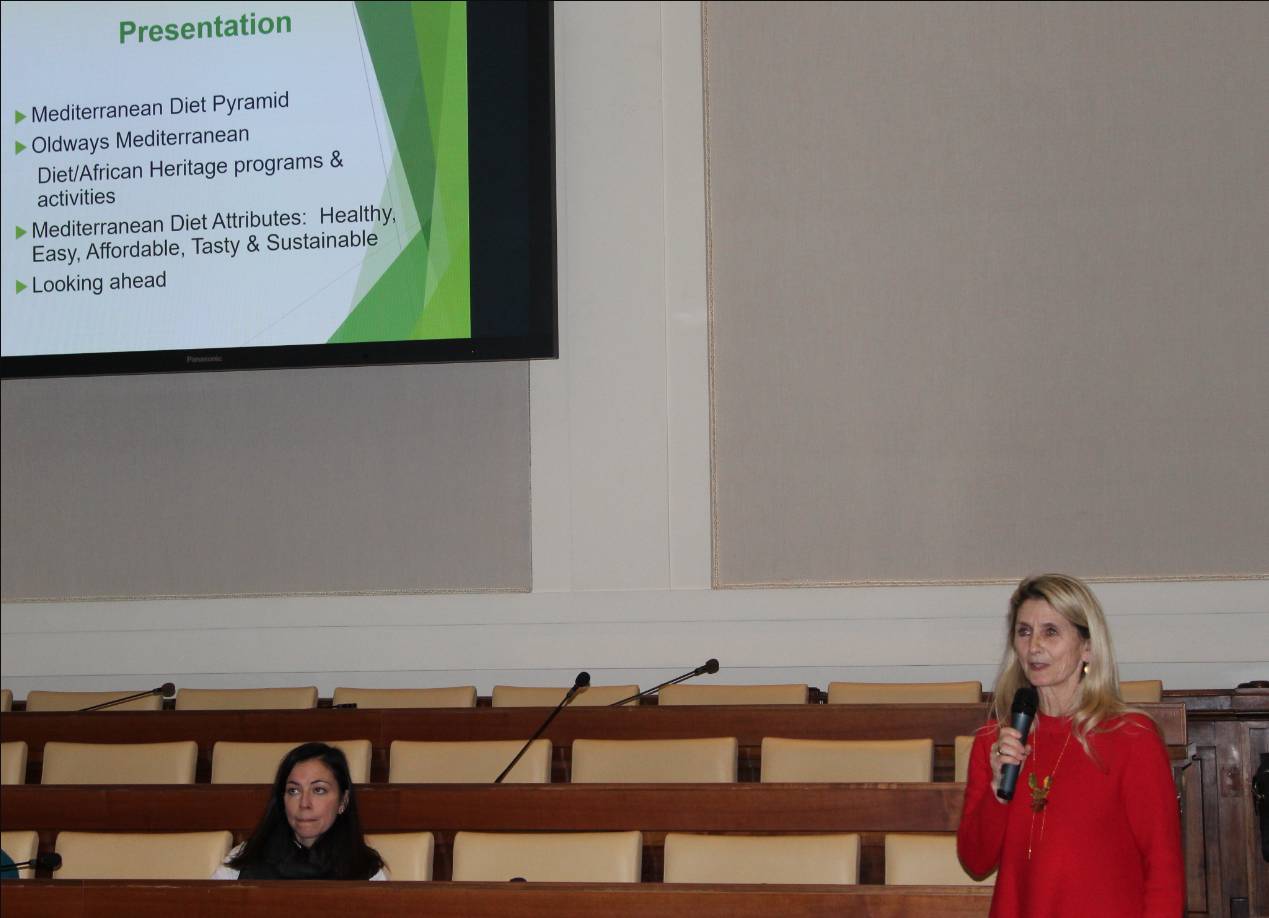The invitation came in the fall. Would I participate in a Mediterranean Diet Conference at the Vatican on Valentines Day Theres nothing I love more than an opportunity to talk about the Mediterranean Diet, and with the addition of the Vatican on Valentines Day, it was an easy, exciting and enthusiastic no-brainer: Yes.
This interesting and innovative conference organized under the patronage of the Pontifical Academy of Sciences on behalf of the University of Florence and Mugello Culla del Rinascimentoa nonprofit association promoting the Mugello region as the cradle of the Renaissance was held in the beautiful Casina Pio IV, inside the Vatican. Being there was one of those pinch-me-is-this-really-real moments.
It was also a moment for action, inspired by discussion and presentations of the day.
The objective of the conference was to debate the value we place on our food, in the context of increasing recognition of the importance of traditions and food quality (as evidenced by the Mediterranean Diet) to ensure health and sustainability. The conference also aimed to set in place an action plan for different sectors policy makers, health professionals, NGOs, educational institutions and industry to address the links between what we eat and the health of all people and the planet we share.
The conference was opened by Monsignor Marcelo Sànchez Sorondo, Chancellor of the Pontifical Academy of Sciences and Paolo Pasquali of Villa Campestri in the Mugello district of Tuscany, who both spoke of the value of the Mediterranean diet and of the role the Mediterranean Diet can play in improving the health of people and the environment. The culmination of the Conference was a Call to Action, a Consensus Statement, but a lot happened before that point.
To help you imagine yourself sitting next to me in the Casina Pio IV, here are some of my favorite presentation takeaways:
From David Katz, Yale Prevention Research Center and Founder, True Health Initiative, speaking on food and health in the modern world and the cost of convenience:
Lifestyle has the potential to decrease premature death by chronic disease by 80%.
Healthy practices for people are the same ones for the planet.
From Francesco So, University of Florence and co-organizer of the Conference, speaking on the Mediterranean Diet for health and beyond:
Its important to learn from the past, live in the present, and believe in the future.
From Antonia Trichopoulou of the Hellenic Health Foundation in Athens, speaking on the paradigm of the Mediterranean Diet:
Diet comes from the word diaita which means way of life or lifestyle a social practice based on a set of skills, knowledge, practices and tradition, ranging from landscape to the cuisine, and also manifested through festivals, celebrations and intellectual dialogue.
The Mediterranean Diet is not just for the elite; it is for all.
From Chef Giorgio Locatelli, Chef and owner of Locanda Locatelli in London, speaking on inspiring people to value cooking:
It is very dificult to calculate the value in the conviviality of food and this is an area to which we must draw our attention.
From Greg Drescher of the Culinary Institute of America, speaking on advancing plant-forward food cultures:
Food literacy is important we can’t have what we don’t know.
To secure the Mediterranean food culture this world heritage for the future, we’ll need to form new alliances that better connect chefs and other change drivers in the food system with university researchers, NGOs, and policy leaders at every level of government.
From Jean-Xavier Guinard, University of California at Davis, speaking on sensory strategies for dietary changes:
Make small changes to create healthier eating habits.
From Daniele Del Rio of the University of Parma, speaking on nutrition education:
If we do not communicate what researchers produce or if we communicate it badly, the damage may be irreparable.
From Fabrice DeClerck, Science Director of the EAT Foundation, speaking on sustainable food for the future:
As with the Mediterranean diet, sustainable food systems can serve as the central attractor to change by celebrating food that is culturally specific, environmentally appropriate and healthy.
From Simon Poole, MD, Family Physician in Cambridge, UK, and co-organizer of the Conference, summarizing the Conference and introducing the Consensus Statement:
A renaissance in the value we place on food is urgently needed to reverse what is a growing health crisis in many parts of the world.
There will be a Statement released within the next month, and Oldways will feature it on our website.
And my takeaway or words of wisdom from the Conference
At Oldways, we are optimistic, and believe that it takes more than a village to make change. This conference is very timely, as we learn that the top consumer trends for 2017 are authenticity and healthy living. With calls to action by governments, industry and the medical/scientific/NGO communities, there is the great potential to make a difference in human and planetary health through a renaissance of the Mediterranean Diet (and other heritage diets) in the 21st century.
Sara Baer-Sinnott, Oldways President









